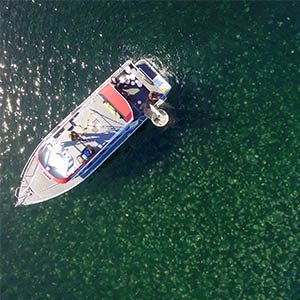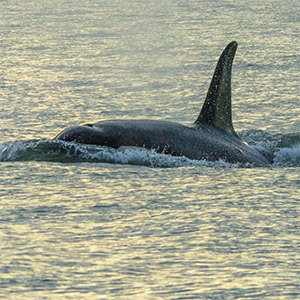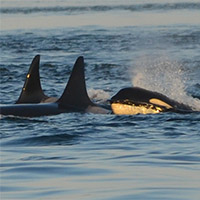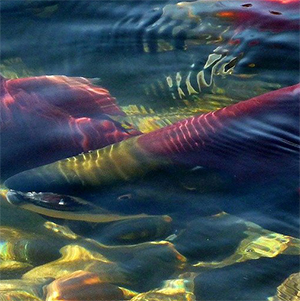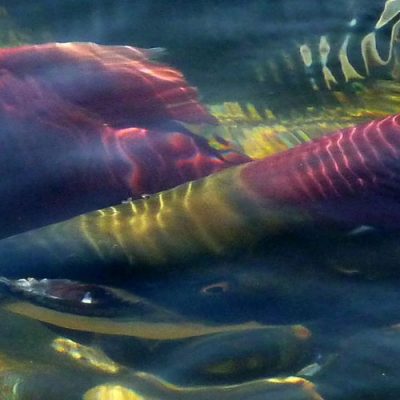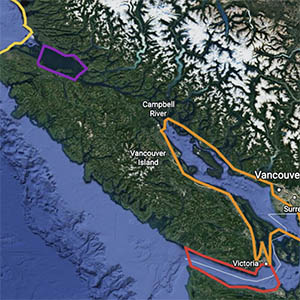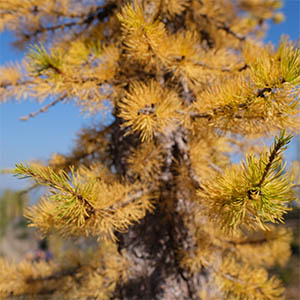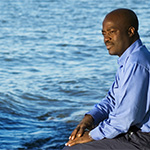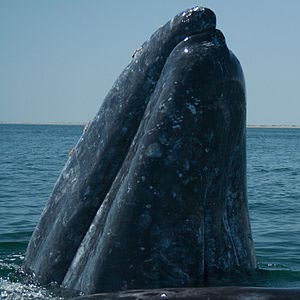Jellyfish size might influence their nutritional value, UBC study finds
Researchers confirmed what was already known: jellyfish eat bigger prey as they grow, which means they also occupy a higher position in the food web as they grow. They also found that some of the concentrations of ‘healthy fats,’ increase as jellyfish grow. These changes might be influenced by their diet, and as they feed on bigger prey with higher levels of fatty acids, the jellyfish accumulate more of these fatty acids.
Food quality matters for southern resident killer whales, UBC study states
If southern resident killer whales ate just low-lipid salmon, they would have to eat around 80,000 more Chinook salmon every year than if they just ate high-lipid salmon.
Toxic toilet paper and long-lasting chemicals found in endangered killer whales
A chemical used in the production of toilet paper and ‘forever chemicals’ have been found in the bodies of orcas in B.C. , including the endangered southern resident killer whales.
The DNA of salmon heritage
Two UBC researchers are exploring the problem of dwindling salmon runs from opposite ends of the knowledge continuum—cutting edge genomics, and empirical evidence gathered over millennia by the Indigenous Peoples of the coast.
Food quality might be key for juvenile sockeye salmon growth and survival
The quality of food sockeye salmon eat along their migration routes is more important to their growth and condition than quantity, a new study has found, highlighting concerns about the effects of climate change on ocean conditions and salmon.
Expect shorter food chains in more productive coastal ecosystems
“We provided evidence for bottom-up omnivory in nutrient-rich temperate pelagic ecosystems, where food chain length is determined by the level of diatom production,” said Jacob Lerner. “This is very different from the global model for pelagic ecosystems.”
IOF finds fun fighting fire and fatigue in footslog up (and down) Frosty Mountain
“I’d walk through a burning building if there was a golden larch on the other side,” Adam Hicks remarked
BC is facing a steep decline in sockeye salmon
The sockeye population has been in decline for a century – since 1913, returns in the Skeena River have dropped by 75% – and while there are many factors at play, says Dr. William Cheung, “climate change is definitely one of them.”
B.C. ocean’s worth of almost $5 billion to GDP likely an underestimate
The ocean is very valuable to B.C., in terms of GDP, jobs, and income.
Grey Whales — the other Pacific Northwest resident whale
Grey whales face many threats ranging from entanglements and ship strikes, to loss of habitat and reduced prey availability. Researchers are collecting data this summer needed to quantify and mitigate these threats.
